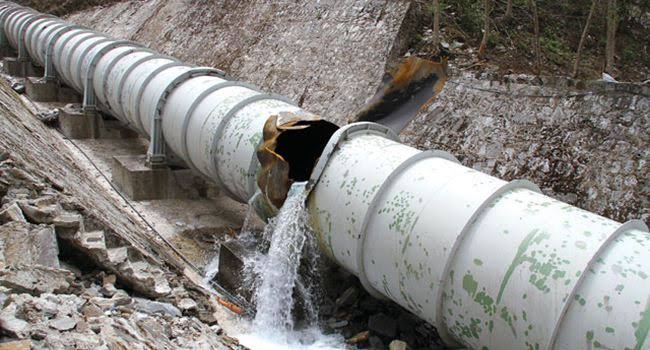BY KELECHI OGUNLEYE
The destruction of Nigeria’s Critical National Assets and Infrastructure (CNAI) by miscreants has become a growing concern for citizens, security agencies, and the Federal Government.
Vandalism affects various sectors, including the national grid, pipelines, railways, streetlights, and manholes.
The theft of transmission lines has further deepened Nigeria’s infrastructural deficit.
Recent data reveal the extent of this worrisome crisis. In 2024 for instance, the Transmission Company of Nigeria (TCN) reported over 13 cases of vandalism on power transmission infrastructure across the country, greatly disrupting electricity supply.
Between January and November 2024, TCN spent approximately N8.8 billion repairing 128 vandalised transmission towers, leading to frequent blackouts in major cities such as Abuja, Lagos, and Kano.
In Northern Nigeria alone, N9 billion was expended to restore vandalised power infrastructure, with additional delays caused by attacks from armed groups.
According to reports, between January 2022 and February 2024, at least 117 electricity towers were vandalised, incurring repair costs of around N12.8 billion (TCN Annual Report).
Specific incidents underscore the severity of the situation. On January 9, 2025, vandals damaged towers 105, 106, and 107 along the Katsina-Gazoua 132/33kV transmission line, putting them at risk of collapse.
Similarly, in Abuja, vandals targeted 132kV underground transmission cables near Millennium Park, disrupting power supply to key areas.
Analysts say the consequences of such vandalism are dire, as Nigeria’s power grid is already fragile due to aging infrastructure, poor maintenance, and underinvestment.
According to the World Bank, vandalism has worsened these challenges, contributing to Nigeria’s annual loss of an estimated $29 billion due to power outages.
Albeit efforts by security agencies, the national grid collapsed multiple times in 2024, leaving entire regions in darkness.
Beyond the power sector, other critical infrastructures have also been severely affected.
The Nigeria Railway Corporation (NRC) has also struggled with the theft of rail tracks, causing operational disruptions and financial losses.
In the oil and gas industry, pipeline vandalism and oil theft have reduced Nigeria’s oil output by 27.4 per cent, bringing production down to 1.4 million barrels per day in spite ongoing security efforts.
In response to all of these concerns, the Minister of Interior, Dr Olubunmi Tunji-Ojo, under the leadership of President Bola Tinubu, has played an active role in repositioning the Nigeria Security and Civil Defence Corps (NSCDC).
This is to ensure the effective protection of all CNAI across the country.
As the agency responsible for crisis management and other security enforcement duties, the NSCDC has worked tirelessly over the years to curb the menace of vandalism. However, in spite numerous arrests of vandals across the country, they appear unrepentant.
The Corps continues to express concern over the repeated reconstruction of dismantled illegal mining sites, the theft of newly installed public facilities, and other criminal acts.
Over time, the Federal Capital Territory (FCT) has become a hotspot for vandalism, notwithstanding the presence of security agencies. Cases of theft, such as the removal of streetlights and manhole covers, have become increasingly common.
According to NSCDC FCT Com- mandant Dr Olusola Odumosu, between January and December 2024, the command arrested a total of 188 suspected vandals of CNAI across various parts of the territory.
He further revealed that out of the 243 cases recorded by the CNAI department, 16 had been prosecuted, while eight had resulted in convictions (NSCDC FCT Annual Report).
Following investigations, the Corps discovered that many acts of vandalism and theft of public property in the FCT were carried out by criminals disguising as scavengers, popularly known as “baban bola”.
The NSCDC has since recovered numerous stolen public properties, including manhole covers, streetlights, telecommunication cables, and railway sleepers.
Due to the increasing frequency of these crimes, the FCT Security Council, headed by FCT Minister Nyesom Wike, established the Joint Task Force (JTF) to tackle insecurity across the territory.
This multi-agency security team, with the NSCDC as the lead agency for infrastructure protection, has successfully recovered numerous vandalised man-hole covers from various “pantaker” markets in the FCT.

















